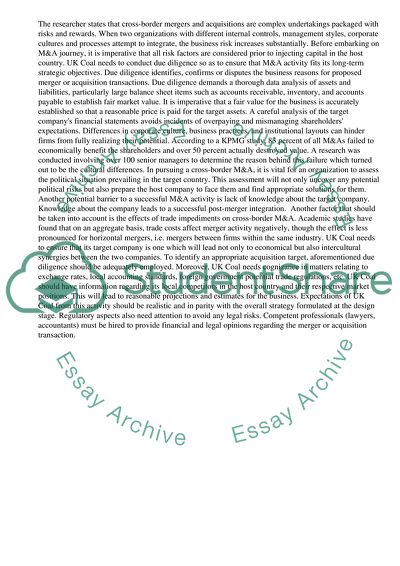Cite this document
(“The Risks That UK Coal, an FTSE Listed Company, Can Potentially Face Case Study”, n.d.)
The Risks That UK Coal, an FTSE Listed Company, Can Potentially Face Case Study. Retrieved from https://studentshare.org/business/1525071-international-business-finance
The Risks That UK Coal, an FTSE Listed Company, Can Potentially Face Case Study. Retrieved from https://studentshare.org/business/1525071-international-business-finance
(The Risks That UK Coal, an FTSE Listed Company, Can Potentially Face Case Study)
The Risks That UK Coal, an FTSE Listed Company, Can Potentially Face Case Study. https://studentshare.org/business/1525071-international-business-finance.
The Risks That UK Coal, an FTSE Listed Company, Can Potentially Face Case Study. https://studentshare.org/business/1525071-international-business-finance.
“The Risks That UK Coal, an FTSE Listed Company, Can Potentially Face Case Study”, n.d. https://studentshare.org/business/1525071-international-business-finance.


